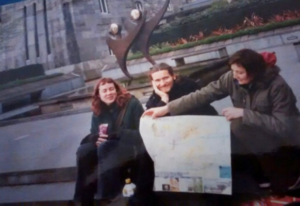
Sarah Hampton (left) with Mark Kennedy, Dublin, 2005
Sarah Hampton, deceived into a relationship by undercover police officer Mark Kennedy, finally got an apology from the Metropolitan Police last week. She met Kennedy in Dublin in 2005.
Yesterday she wrote to the Irish prime minister insisting that his government raise the issue of spycops in Ireland with their British counterparts and demand Ireland be included in the forthcoming undercover policing inquiry.
This morning we issued this press release to the Irish media, including her full letter:
FOR IMMEDIATE RELEASE
A woman who unwittingly had a relationship with a British undercover police officer in Ireland is demanding the Taoiseach raise the issue with the British government. Sarah Hampton, a US citizen, met Mark Kennedy in Dublin in 2005 but only discovered his true identity five years later.
Kennedy is one of several officers from the disgraced ‘spycops’ secret political policing units to known to have been in Ireland. He spied on a number of campaigns including the Shell To Sea gas pipeline protest in Enda Kenny’s constituency of Mayo.
In a letter to the Taoiseach, Hampton insists he honour his proposal to have the controversy raised as part of a State meeting this week between Irish Minister for Foreign Affairs and Trade Charles Flanagan and the British Secretary of State.[1]
The Metropolitan Police apologised to Hampton last month, admitting ‘the relationship between you and Mark Kennedy was abusive, deceitful, manipulative and wrong… an abuse of police power that resulted in a violation of your human rights, a breach of your privacy and trust, and the source of significant trauma to you’.[2]
Ms Hampton is one of 200 ‘core participants’ at the British Undercover Policing Inquiry (UCPI), set up in 2015 by then-Home Secretary Theresa May to examine systematic abuses by officers of the secret political policing units, including those of Mark Kennedy.
However, the UCPI is restricted to events in England and Wales. Ms Hampton and other victims of British police spying have been campaigning with support of TDs Paul Murphy[3], Clare Daly[4], Jonathan O’Brien and MEP Lynn Boylan[5] to have British officials extend the UCPI remit to include Ireland.
Hampton’s letter to the Taoiseach said,
‘Finding out that Mark was an undercover police officer brought about a deep depression that seemed impossible to navigate, there were times I have almost given up completely. The process of seeking justice on this case has felt at times belittling, intimidating and downright scary. I felt I had been raped, I never consented to sleeping with a police officer.’[6]
Other officers from the units, named in the Dáil last week as John Dines[7] and Mark Jenner[8], had similar relationships whilst in Ireland. The women concerned have received similar apologies from the Metropolitan Police[9].
In a related matter, UCPI core participant Jason Kirkpatrick was in Belfast High Court last week where he secured a judicial review of the UCPI’s exclusion of activities in Northern Ireland.
Kirkpatrick, a former Vice Mayor from Arcata, California, was spied upon by Mark Kennedy during a 2005 anti-globalisation informational tour driven by Kennedy from Dublin via Co Clare to Belfast.[10]
Kirkpatrick said:
‘We’re not dealing with suspicions or allegations but what the Metropolitan Police have admitted is an abuse of police power and a breach of human rights. The weak internal Garda review recently commissioned by Minister for Justice and Equality Frances Fitzgerald to look into Kennedy’s actions in Ireland appears to be a whitewash. It lacks transparency and prioritises abusers over victims by excluding us entirely from the process.[11]
‘We insist the Taoiseach and Irish ministers work to reverse Theresa May’s decree and have Ireland included in the formal British UCPI. If people abused in England deserve the truth, so do those in Ireland. We all have a right to know what has really been going on with this illegal, immoral British international political policing’.
ENDS
NOTES TO EDITORS
Campaign Opposing Police Surveillance is an alliance of people known to have been targeted by Britain’s political secret police.
[1] Paul Murphy challenges Taoiseach about Mark Kennedy & Spycops, Leaders Questions, 8 Feb 2017
https://www.youtube.com/watch?v=GlyTY2408zQ
[2] Letter from Assistant Commissioner Fiona Taylor, Metropolitan Police, 19 January 2017
https://www.yumpu.com/xx/document/view/56826058/letter-from-ac-taylor-to-bindmans- llp-19jan17
[3] The curious case of how a British cop went undercover among Irish protesters, The Journal, 11 February 2017
http://www.thejournal.ie/british-cop-undercover-3230569-Feb2017/
[4] ‘Germany and Scotland have both demanded inclusion in #spycops inquiry but Ireland refuses to do the same – Why??’, Clare Daly, Twitter, 26 January 2017 https://twitter.com/claredalytd/status/824620305389944833
[5] Gardai knew UK police spy was in Republic, The Times, 24 September 2016
http://www.thetimes.co.uk/article/gardai-knew-uk-police-spy-was-in-republic-586nqkg53
[6] Sarah’s Statement, Sarah Hampton, Police Spies Out of Lives, 7 February 2016 https://policespiesoutoflives.org.uk/sarahs-statement/
[7] John Dines profile, Undercover Research Group
http://powerbase.info/index.php/John_Dines
[8] Mark Jenner profile, Undercover Research Group
http://powerbase.info/index.php/Mark_Jenner
[9] Claimants in civil cases receive MPS apology, Metropolitan Police, 20 November 2015
http://campaignopposingpolicesurveillance.com/2015/11/20/police-apology-women-deceived-relationships-spycops
[10] Undercover London police present at NI murder protest, RTE, 7 February 2017 http://www.rte.ie/news/2017/0207/850802-undercover-northern-ireland/
[11] Minister orders report on British police spy, The Times, 19 October 2016
http://www.thetimes.co.uk/article/minister-orders-report-on-british-police-spy-jtnrjkb7t
The full text of Sarah Hampton’s letter to the Taoiseach:
12th February 2017
Dear Taoiseach Enda Kenny,
Dear Minister for Foreign Affairs and Trade, Charles Flanagan TD
Dear Tánaiste and Minister for Justice and Equality, Deputy Frances Fitzgerald TD
My name is Sarah Hampton, you may have first heard my name when I was quoted on the Parliament floor by TD Paul Murphy on 8 February 2017. In 2005 I was on holiday on Ireland when I met Mark Kennedy. I subsequently went onto have a one year relationship with the man I then knew as ‘Mark Stone’ without any idea of his true identity. In 2010 I found out that he was a British undercover police officer working in Ireland as a member National Public Order Intelligence Unit.
Finding out that Mark was an undercover police officer brought about a deep depression that seemed impossible to navigate, there were times I have almost given up completely. The process of seeking justice on this case has felt at times belittling, intimidating and downright scary. I felt I had been raped, I never consented to sleeping with a police officer.
On the 3rd February 2017 I received a written full apology from the Metropolitan Police
Service (MPS).Assistant Commissioner Fi ona Taylor wrote me to acknowledged the pain and stress I have endured as the result of the deceitful relationship. The MPS Assistant Commissioner stated,
“The relationship between you and Mark Kennedy was abusive, deceitful, manipulative and wrong.” “The relationship should never have happened”. “I recognise that what happened in your case was an abuse of police power that resulted in a violation of your human rights, a breach of your privacy and trust, and the source of significant trauma to you”.
I note the Parliamentary Answer that TD Clare Daly received from the Tánaiste, 8th February 2017, stating “should anything emerge from the findings of the UK’s Undercover Policing Inquiry (UCPI) that would be relevant to policing in this jurisdiction I will consider it fully and take any action that may be required.”
However at this point the UCPI excludes Ireland completely, so this Parliamentary Answer is illogical and does not satisfy my concerns in the least. We don’t need to wait for the findings of the UK undercover policing inquiry to know that there are significant grounds for taking action on this matter. I am a US citizen, I was on holiday in Ireland when our relationship began, and despite the British MPS apology I have received, I have many unanswered questions regarding Ireland. I want to know if Irish authorities knew what Mark Kennedy was doing, and I want details about his operations in Ireland.
– Did you allow him to develop intimate relationships with women in your jurisdiction?
– Was he operating with the full permission of the Irish authorities?
– Do you have police files on me?
– To what extent has my right to privacy been invaded by the Irish authorities?
It is my belief that Police and government are supposed to be here to serve the people and they need to be held responsible when they themselves have even admitted to being negligent and violating human rights. I believe that by not taking action on this matter you are perpetuating the trauma I have experienced and that my human rights are continuing to be violated.
Further I find it shocking that via my solicitor Darragh Mackin of KRW Law I have informed the Minister of Justice about such issues via legal letters dated 17 May 2016 and again on 20 December 2016, yet to date I have received no reply although both letters were even reported in the media.
On 8 February the Taoiseach stated in Parliament that he would have his Minister for Foreign Affairs and Trade, Charles Flanagan TD, raise the issue with British officials within the coming week. I firmly request that you take action to insist to British officials that the UCPI be extended to include the activities of undercover activities in the Republic of Ireland.
Yours sincerely,
Sarah Hampton
Core Participant in the UK Undercover Policing Inquiry
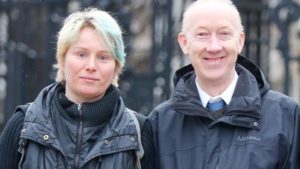

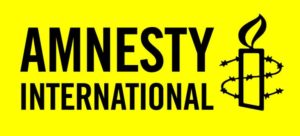 Amnesty International has joined the struggle for justice in the spycops scandal, backing a legal case by victims to get the public inquiry into Britain’s political secret police extended to cover Northern Ireland.
Amnesty International has joined the struggle for justice in the spycops scandal, backing a legal case by victims to get the public inquiry into Britain’s political secret police extended to cover Northern Ireland.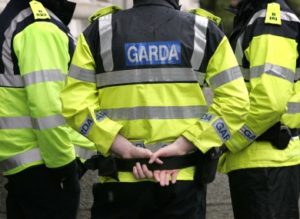 Shortly after the truth about undercover officer Mark Kennedy hit the headlines in January 2011, officials from many of the 11 countries he visited wanted answers. In Ireland, the Minister of Justice asked the police to write a report on his visits.
Shortly after the truth about undercover officer Mark Kennedy hit the headlines in January 2011, officials from many of the 11 countries he visited wanted answers. In Ireland, the Minister of Justice asked the police to write a report on his visits.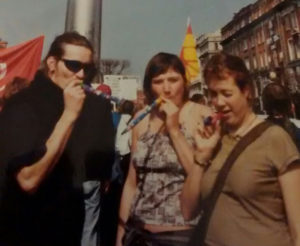
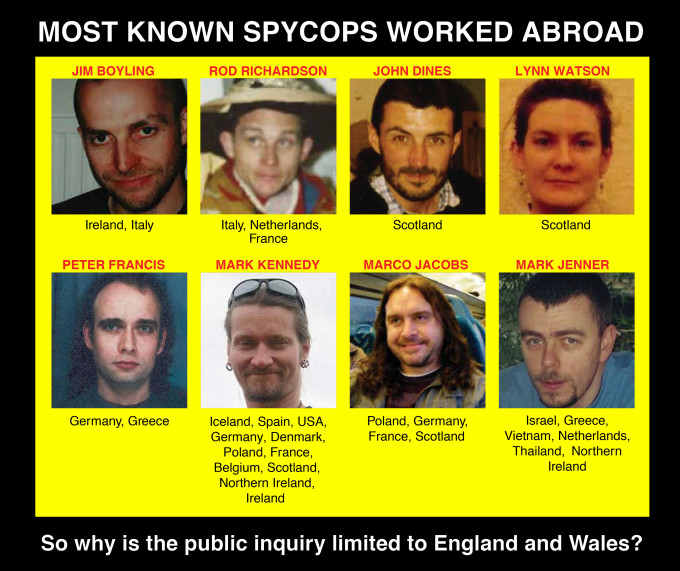 As children in school we are taught that the best way to organise a nation in the interest of its citizens is with a democratic system, and that this system can’t be flawed because of its checks and balances. Yet recently the Irish government has been proving that the opposite is true, it is operating to protect itself and its security apparatus against the best interests of the people.
As children in school we are taught that the best way to organise a nation in the interest of its citizens is with a democratic system, and that this system can’t be flawed because of its checks and balances. Yet recently the Irish government has been proving that the opposite is true, it is operating to protect itself and its security apparatus against the best interests of the people.
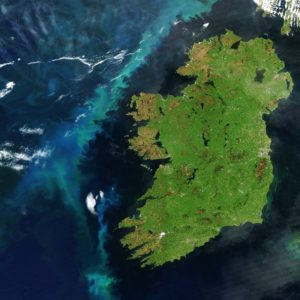 Of the thousands of people targeted by Britain’s political secret police, around 180 were known to be so significantly impacted that they have been granted ‘core participant’ status at the forthcoming
Of the thousands of people targeted by Britain’s political secret police, around 180 were known to be so significantly impacted that they have been granted ‘core participant’ status at the forthcoming 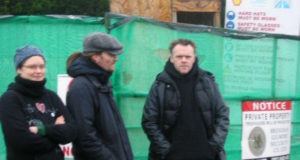
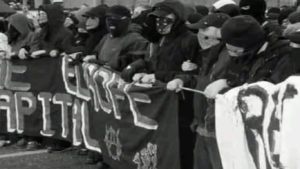
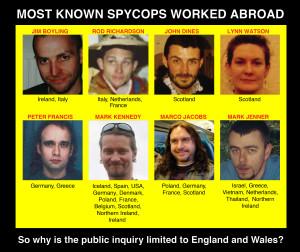 The German government have formally asked to be included in the forthcoming
The German government have formally asked to be included in the forthcoming